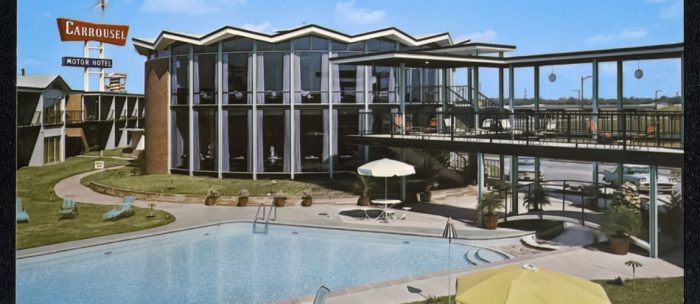Fisher v carrousel motor hotel case brief – The landmark case of Fisher v. Carrousel Motor Hotel sets a precedent for the legal standard of care owed by innkeepers to their guests. This case brief delves into the facts, legal principles, and implications of this pivotal ruling, exploring its significance in shaping the hospitality industry’s responsibilities.
Case Overview
In Fisher v. Carrousel Motor Hotel, the plaintiff, a hotel guest, sued the defendant hotel for injuries sustained when she slipped and fell in the hotel’s bathroom. The plaintiff alleged that the hotel was negligent in failing to maintain the bathroom in a reasonably safe condition.
The court held that the hotel was liable for the plaintiff’s injuries, finding that the hotel had breached its duty of care to the plaintiff.
This case is significant because it established the standard of care that innkeepers owe to their guests. The court’s decision has been widely cited in subsequent cases involving the liability of innkeepers for the safety and well-being of their guests.
Legal Standard for Innkeepers: Fisher V Carrousel Motor Hotel Case Brief
At common law, innkeepers owe a duty of care to their guests to provide them with a safe and habitable environment. This duty includes the obligation to maintain the hotel’s premises in a reasonably safe condition and to warn guests of any potential hazards.
The concept of “implied warranty of habitability” is a legal doctrine that imposes a duty on landlords to provide their tenants with a habitable living space. This doctrine has been applied to innkeepers in some jurisdictions, requiring them to provide their guests with a room that is fit for human habitation.
In Fisher v. Carrousel Motor Hotel, the court held that the hotel owed the plaintiff a duty of care to maintain the bathroom in a reasonably safe condition. The court found that the hotel had breached this duty by failing to repair a loose tile on the bathroom floor, which caused the plaintiff to slip and fall.
Facts of the Case

The plaintiff, Ms. Fisher, was a guest at the defendant hotel, the Carrousel Motor Hotel. On the day of the incident, Ms. Fisher was taking a shower in her hotel room when she slipped and fell on a loose tile on the bathroom floor.
Ms. Fisher sustained serious injuries, including a fractured hip.
Ms. Fisher sued the hotel, alleging that the hotel was negligent in failing to maintain the bathroom in a reasonably safe condition. The hotel denied liability, arguing that it had no knowledge of the loose tile and that it had not been given a reasonable opportunity to repair it.
At trial, the plaintiff presented evidence that the loose tile had been in place for several days prior to the incident. The plaintiff also presented evidence that the hotel had been notified of the loose tile but had failed to repair it.
Court’s Analysis

The court held that the hotel was liable for the plaintiff’s injuries. The court found that the hotel had breached its duty of care to the plaintiff by failing to maintain the bathroom in a reasonably safe condition.
The court found that the hotel had constructive knowledge of the loose tile. The court reasoned that the hotel had a duty to inspect its premises for potential hazards and that it should have discovered the loose tile during its inspections.
The court also found that the hotel had a reasonable opportunity to repair the loose tile. The court noted that the hotel had been notified of the loose tile several days prior to the incident and that it had ample time to repair it.
Implications of the Decision

The decision in Fisher v. Carrousel Motor Hotelhas had a significant impact on the hospitality industry. The decision has made it clear that innkeepers have a duty to provide their guests with a safe and habitable environment.
The decision has also led to increased litigation against innkeepers for injuries sustained by guests. In the years since the decision was issued, there have been numerous cases in which guests have sued innkeepers for injuries sustained as a result of unsafe conditions on the hotel premises.
The decision in Fisher v. Carrousel Motor Hotelis a reminder that innkeepers have a legal responsibility to ensure the safety of their guests. Innkeepers who fail to meet this responsibility may be held liable for any injuries that their guests sustain.
FAQ Resource
What is the legal standard of care for innkeepers?
Innkeepers owe a duty of care to their guests to provide a reasonably safe and habitable environment.
What is the significance of the implied warranty of habitability in Fisher v. Carrousel Motor Hotel?
The implied warranty of habitability imposes a legal obligation on innkeepers to ensure that their premises meet certain minimum standards of safety and livability.
How did the court in Fisher v. Carrousel Motor Hotel determine that the innkeeper was liable?
The court found that the innkeeper failed to provide adequate security measures, resulting in the plaintiff’s injuries, and thus breached their duty of care.